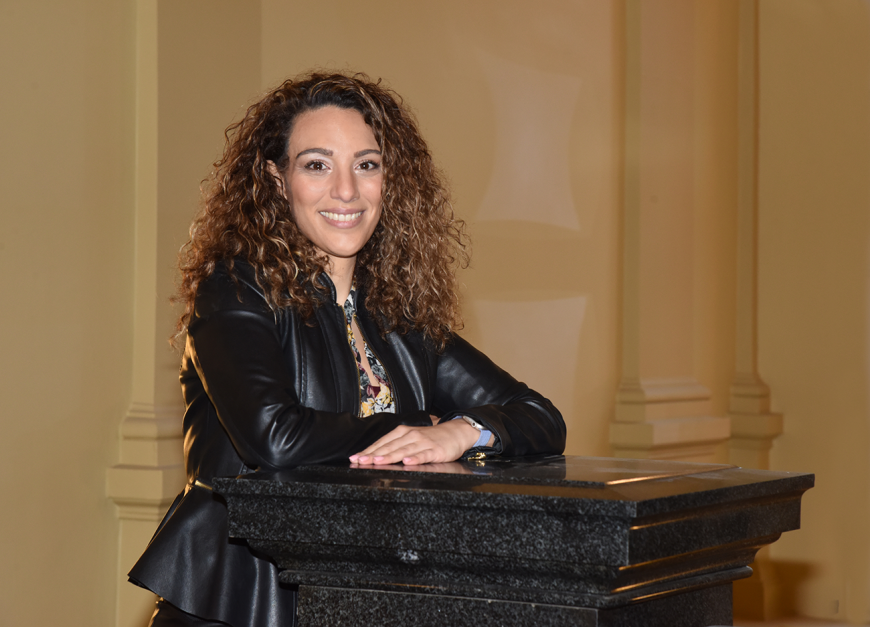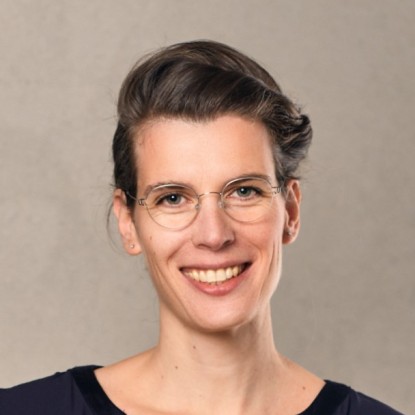Professur für Dr. Georgia Chalvatzaki
Making robots useful parts of our society
2022/02/02
Since February, Georgia Chalvatzaki has been assistant professor for “Intelligent Robotic Systems for Assistance” at the Department of Computer Science. Chalvatzaki has been leading the iROSA research group since 2021 as part of the Emmy Noether Programme of the German Research Foundation. Previously, the 33-year-old researcher was a postdoctoral researcher in the Department of Intelligent Autonomous Systems in the Department of Computer Science. We asked Professor Chalvatzaki about her work:

My most important moment was when I was accepted at the Emmy Noether Programm of the DFG. This career achievement enabled me to spread my wings, create my new research group here at TU Darmstadt, and allowed me to follow my research vision.
Why should students be interested in your scientific subject?
The future society will be enabled by Artificial Intelligence. This is a field of studies that aims to automatize parts of our work, with the purpose of making life easier and create new opportunities for the evolution of the human mind and mankind. Robotics is a field of studies that is a natural application for artificial intelligence. The scope of my research is to create intelligent robotic assistants, that will assist elderly at their houses and in nursing homes, nurses, and patients in hospitals, and so on. Our field of study aims to create algorithms to allow robots to learn from experience and by observing humans, with the purpose of making robots useful parts of our society. This comes with many challenges and is a very interdisciplinary topic that makes it even more exciting.
At the TU Darmstadt the need for interdisciplinarity is accentuated. Which cutting points / interfaces to other faculties exist in your area of research?
The obvious interaction between the fields of engineering, computer vision, machine learning forms the basic interdisciplinary knowledge that a researcher in our field should have.
However, our topic is related to many fields, like cognitive science, i.e., for understanding the behaviors of humans and trying to model these behaviors in robots, understanding the emotional status of a human partner, etc. Moreover, interfaces with legal studies but also studies of humanities are necessary, so that we can define ethical and transparent framework inside which the robot should operate, to ensure human safety and trust to the robotic assistants.
In which faculty you would like to spend a day to get a taste of it? Why?
I would like to learn more about the Human Science Department. I think that there is a lot of knowledge in the studies of human cognition, social behavior, and even human movement, that we, roboticists, could take inspiration and define new paradigms for robot learning. Moreover, in human robot interaction, we need to be able to perceive and understand human behavior, which tends to be unpredictable. Understanding how a human understands its own decisions, and creates a mental model of the behavior of another partner is an open problem for fluent human-robot interaction and collaboration.
If I would be a student today, I would…
Probably chose to study computer science, as the prospects of this research field are high. However, I would try to add more topics from cognitive sciences into my curriculum, as I didn’t have the chance to do that during my studies. Math is fundamental for our research topic, however, being able to understand things beyond numbers is necessary when you want to make an impact to society, in particular, if you are working towards the future human-centered robotic assistants.
The perfect balance to a stressful working day is …
A walk in the park with friends (when I was in Greece I would go for a walk along the beach) and a nice workout. Importantly, trying to reflect and understand the source of stress is important. I myself have made a lot of progress with stress management but I am still working on it, as working on yourself is an important daily goal.
Contact
Georgia Chalvatzaki
Hochschulstr. 10
64289 Darmstadt
contact@irosalab.com

